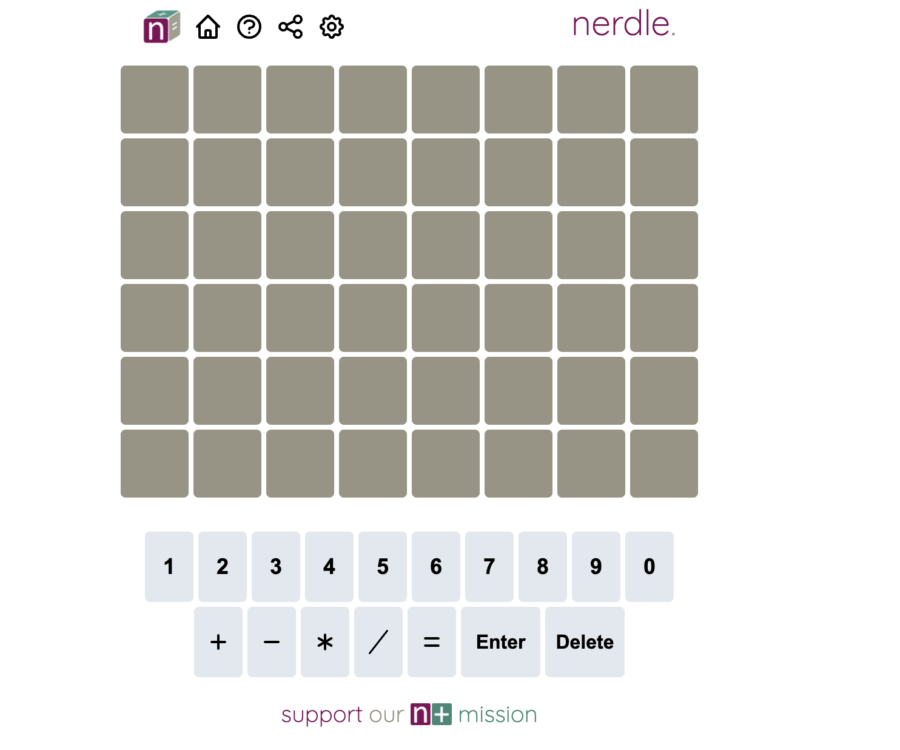Wordle Spinoff Is Rapidly Becoming A New Fave
Ever since the original Wordle game went viral, app makers worldwide sought to ride a wave of its popularity with their own iteration of the game.
This article is more than 2 years old

Math fans and lovers, rejoice; you finally got your own version of Wordle, a game appropriately named Nerdle. Ever since the original Wordle game went viral, app makers worldwide sought to ride a wave of its popularity with their own iteration of the game. These clones, or rather clonedles (yes, it’s a made-up word), include Worldle, which tests your knowledge of geography; Subwaydle, challenging New York transit prowess; Lordle of the Rings, a Lord of the Rings-inspired Wordle variant; and Nerdle, the Wordle spinoff and a center topic of today’s discussion.
As reported by Kotaku, Nerdle, the Wordle spinoff game, is taking the world by storm. This is surprising, considering just how many people disliked math in high school, but unlike other Wordle clones on the market, Nerdle features all the stickiness of the original game, despite players having to guess basic arithmetic hiding behind blank blocks. Though it might not sound appealing to the average John or Jane looking to relax with some word-guessing play, Nerdle follows the very same format Wordle does — making the game challenging enough to keep your attention, yet easy enough not to scare you away with its numbers.
Admittedly, the game does seem scary at first, especially if a player isn’t a former high school or college math wiz. Wordle’s core concept is relatively simple, and players had to guess a five-letter word using a maximum of six guesses. It sounds fairly simple and not so difficult for a game that actually saves lives. But Nerdle wants players to discern an eight-character mathematical equation in just six guesses. Six guesses seem hardly fair, and players would expect a more realistic number of guesses, somewhere between 10 and a million.

Because let’s be honest, a rare few actually love mathematics. And while players only have the numbers 0 through 9 to enter, as opposed to Wordle’s 26 letters of the alphabet, the standard mathematical operators +, – , * , /, and = make things much more difficult. Not to mention the innumerable array of single-digit combinations that would comprise larger numbers. Sound nearly impossible to solve. Except that it’s not. In fact, Nerdle is as straightforward as Wordle, since it follows the exact same format. And just like with Wordle, after mastering a steep but short learning curve, players would quickly master the ideal opening sums, and places of numbers and operators.
Of course, a mathematical game would have to follow specific gameplay rules, and in Nerdle’s case, players only need to follow the order of operations in mathematics to reach the solution. The only downside is that it requires entering the numbers in a prescribed arrangement of the determined solution. This means that the game’s systems don’t employ commutative laws (a+b=b+a), as those don’t necessarily hold for certain calculations involving multiplication. However, an “allow commutative answers” option was reported by a few players, perhaps indicating that the option is currently in its test phase.
In conclusion, Nerdle is just one of many Wordle spinoffs that emerged in the gaming market in the wake of the original game’s popularity. Hopefully, it won’t become loaded with trackers like Wordle, but it’s not entirely excluded that The New York Times hasn’t cast its gaze on several spinoffs. If they’re already offering a literary game, why not offer a mathematical one as well?












